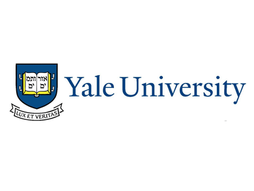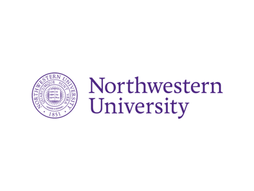An Ultimate Guide to the International Research Olympiad (IRO)
If you’re an academically gifted student with a knack for critical thinking and love competitive exams, you should consider participating in an Olympiad! Olympiads bring together the brightest minds in your city, country, and even the world and pit them against each other in a high-pressure environment. Winning a medal at such an event is extremely prestigious — it marks you out as among the best in your cohort and showcases your analytical and problem-solving capabilities.
Ambitious students looking to get into a highly-ranked college must build fundamental skills to help them ace college-level coursework. One such skill you need is the ability to decode lengthy, often complicated research papers to understand what they’re about. The International Research Olympiad (IRO), designed to challenge your knowledge of the research process, tests just that.
In this blog, we will dive deep into the IRO and learn more about what it is, who it is for, what the curriculum includes, and more. We will also give you ten tips to help you ace the Olympiad!
What is the International Research Olympiad all about?
The IRO is a brand-new Olympiad organized by the Samyak Science Society, a non-profit that aims to introduce scientific research to young learners. The first edition of the IRO was held on March 7-8.
The IRO aims to build research skills that students can apply to disciplines. The Olympiad focuses on testing skills like creative and critical thinking and analysis in science, technology (including AI), engineering, mathematics, biology, physics, neuroscience, and medicine. The Olympiad consists of four rounds — two open exam rounds, semifinals, and finals. The first three rounds are held virtually, with the finals held at Harvard University.
Is the IRO prestigious?
At present, the Olympiad is moderately prestigious, but has immense value for your future research journey as a high schooler. While international Olympiads are usually extremely competitive and highly prestigious, 2024 marks the IRO’s first year and it lacks historical data. The Olympiad has received around 3,000 pre-registrations for 2024, and its further editions should encourage more students to participate.
Who is eligible to participate in the IRO?
To participate, you must meet at least one of the following criteria:
Not have completed 18 years of age by the Olympiad's start date
AND/OR
Be enrolled in a recognized secondary school/high school or homeschooling program
Normally, qualifying for an international Olympiad involves being a part of your country’s team, which you enter by ranking highly in a national Olympiad. However, the IRO is an experimental Olympiad and you — and your team — can register directly with the organizers.
What does it cost to participate in the IRO?
The IRO charges $60 to register for the open rounds, though fee waivers are available. The Olympiad is virtual with only the finals held at Harvard University. IRO organizers will fund the travel costs of the finalists.
How do I prepare for the IRO?
The IRO organizers have published mock examinations online that you can access to get a better understanding of the kind of questions. The Olympiad is designed to test your critical thinking and analytical skills through its multiple rounds.
First, you need to know how to read and understand a research paper. To do this, you can use the three-pass method: you should be able to identify the research question and the paper’s core findings in the first read-through, focus on the research methodology and results to evaluate how reliable the study is and analyze the findings during your second reading, and think about the broader context of the research and its impact in your final read-through. In the third pass, you will have to critically analyze how relevant the paper is to future research.
Next, you need to understand how to structure a literature review. Practice writing reviews that have a distinct introduction, body, and conclusion. Use multiple sources in your review and draw clear connections between the different papers you cite. Tools like Paperpile, Mendeley, Zotero, and Elicit.ai can help you cite articles, summarize key points, and aid note-taking.
We recommend you familiarize yourself thoroughly with research papers of different disciplines to give yourself the best possible chance of winning a medal! You can use repositories like Cornell University’s ARXIV database, Google Scholar, and the online library of National Center for Biotechnology Information to access scholarly articles.
How is the IRO structured?
The IRO has four competition rounds — two “opens” rounds, a semifinal, and the finals. Each round has its unique format and tests your analytical and critical thinking skills.
The “opens” is a 60-minute round consisting of 40 questions, most of which are multiple-choice. You will be given five papers of eight questions each, and you must choose to attempt any four papers, answering 32 questions. The material here includes analyzing research papers, making independent observations, analyzing scientific data, and decoding complex question formation.
The top 10% scorers from the opens make it to the semifinals, a 90-minute round that introduces “free response” questions. Researchers will judge your answers based on your understanding of scientific concepts and your ability to articulate your thoughts concisely.
The top 10 participants from the semifinals make it to the finals, where you get to compete for gold, silver, and bronze medals!
Here are 10 tips to win a medal at the IOI:
Understand the IRO requirements: The IRO is a new Olympiad and there are few past participants and winners to speak with, hence it’s important you clearly understand the rules and clear any doubts you may have directly with the organizers. You don’t want to get disqualified or face a penalty over a trivial issue!
Practice, practice, and practice: There’s no better way to ace a test than to be well-prepared for it! Use the resources at your disposal, like the IRO’s practice papers and websites like ARXIV, Google Scholar, and others to access research papers.
Use digital tools to help you work more efficiently: Paperpile, Mendeley, etc. are great tools that can help you read through research papers faster and build literature reviews. Use them to annotate PDFs, summarize findings, cite articles, arrange references, and more!
Simulate a mock Olympiad: You can simulate an “opens'' round using the practice papers available online and solving them for time. This is a great way to build muscle memory and use your time efficiently.
Manage your time wisely: You have 90 minutes during the open rounds to read five research papers, choose four out of them, and answer 32 questions. This is no small task, and you need to portion your time accordingly so that you can complete the questions and have time to review your answers, if needed.
Participate in independent research programs: Such programs are a great way to work 1-1 with researchers and experience the different steps of conducting research. You can check out the Lumiere Research Scholar Program and Veritas AI, which connect you to mentors from Harvard, MIT, and other top colleges!
Look for a mentor to guide you: Ideally, this would be someone working in the field: either a researcher, Ph.D. candidate, or a professor with a lot of experience reading, writing, and deciphering research papers. Use their knowledge to understand how to simplify complex writing and understand what readers want to know.
Stay up-to-date with the latest developments: IRO subject matter covers science, AI, engineering, mathematics, biology, physics, neuroscience, and medicine. It is a good idea to know about the latest research in these fields as you could get questions related to them.
Join the IRO community: IRO has a discord server you can use to connect with other students interested in the Olympiad. You can use this platform to ask any questions you may have and participate in discussions.
Pay attention to your health: A good diet, exercise, and adequate rest and relaxation plays a crucial role in exam preparation. Inadequate amounts of any of these can impair your memory and logical reasoning capabilities.
Bonus — If you’d like to work on rigorous research, consider the Lumiere Research Scholar Program, a selective online high school program for students founded by researchers at Harvard and Oxford. Last year, we had over 4000 students apply for 500 spots in the program! You can find the application form here.
Also check out the Lumiere Research Inclusion Foundation, a non-profit research program for talented, low-income students. Last year, we had 150 students on full need-based financial aid!
Kieran Lobo is a freelance writer from India, who currently teaches English in Spain.
Image Source: IRO logo









